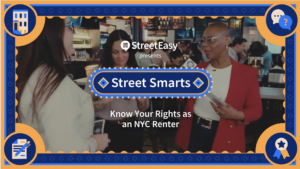The Housing Choice Voucher (HCV) program — also referred to as “Section 8” — has helped make New York City housing more affordable for over four decades. Through the government program, eligible residents can receive rent subsidies for market-rate and subsidized housing. But since there are only about 85,000 voucher holders in a city of roughly 5.4 million renters, it’s not surprising that landlords and brokers have questions about housing vouchers and how the process works. Here are some answers to those questions, with help from real estate agents and members of the NYC Mayor’s Public Engagement Home Support Unit (HSU) and the Department of Housing Preservation & Development (HPD), who have firsthand experience with the HCV program and its recipients.
Premium Products to Boost Your Business
LEARN MOREHow Do Housing Choice Vouchers Work?
Housing Choice Vouchers are available nationwide, with standards set by the U.S. Department of Housing and Urban Development (HUD). In New York City, the program is overseen by three agencies: the NYC Housing Authority (NYCHA), the Department of Housing Preservation & Development (HPD), and New York State Homes and Community Renewal (NYSHCR). The issuing agency, often the Public Housing Authority (PHA), calculates the household’s contribution toward the monthly rent, typically 30% of adjusted gross monthly income, and the subsidy payment makes up the difference.
For example, tenant income must be below $72,900 for a family of three (see detailed income limits). Suppose the family loses income during their tenancy. In that case, they may report it to the PHA, and their share of the monthly rent will be adjusted proportional to their current income. Their subsidy will also be increased.
Waitlists for vouchers are very long, with only a small number of housing vouchers issued annually to maintain the current program size. In fact, NYCHA is no longer accepting applications for its HCV program. The waitlist is open for specific categories of emergency referrals, including victims of domestic violence, from partner organizations.

Do I Have to Accept Voucher Holders as a Landlord or Broker?
The city and state prohibit discrimination against tenants based on their lawful source of income, including housing vouchers, alimony, child support, etc.
Discrimination by housing providers with six or more units has been illegal under New York City law since 2008. The law was expanded on February 15, 2021, making most NYC rentals subject to the NYC Human Rights Law’s source of income protections. If landlords or brokers are found to be refusing tenants who pay rent with housing vouchers, the NYC Commission on Human Rights may investigate and impose penalties of up to $250,000 per violation.
To ensure compliance with these laws, brokers should make sure they are qualifying clients based on all sources of income, advises Sarah Saltzberg, Principal Broker at Bohemia Realty Group and founding member of the Fair Housing Consulting team at REC 4 SUCCESS. “‘Landlords must consider all lawful sources of income’ is the phrase that all agents should be using, as a starting point, when asked if an owner will accept a tenant using a voucher,” Saltzberg says. Heather Huff, also a broker at Bohemia Realty Group and member of the Fair Housing Consulting team, adds: “[Agents] can’t just simply advise prospective applicants that they need to make 40 times the rent with good credit. They should also advise that all lawful sources of income, including housing voucher programs, are considered.”
Landlords and brokers are also prohibited from discriminating among different types of vouchers. “It’s important to remember that even though payments and incentives vary slightly depending on the agency who administers the voucher — the law requires that landlords and brokers treat all applicants equally,” says Karen Arshad, Senior Outreach Director, NYC Mayor’s Public Engagement Unit (PEU). “PEU specialists are ready to provide a concierge service for owners and agents who need assistance navigating the process and staying compliant with the law.”
How Much Rent Can Voucher Holders Afford?
Renters using housing vouchers pay a minimum of 30% of their monthly income (maximum 40%) directly to the landlord. Then, the voucher payment from the government covers the rest. That amount is based on HPD’s Subsidy and Payment Standards, which are updated annually. For example, Payment Standards for 2025 go up to $2,762 for a 1-bedroom, while Exception Payment Standards (applicable in certain “high opportunity” zip codes) for a 1-bedroom go up to $4,452.
Reach More Renters & Buyers With Our Building Advertising Solutions
LEARN MOREWhat’s the Process for Accepting a Voucher-Holding Tenant?
There are a few steps that an owner (landlord) leasing a unit to a voucher-holding tenant must follow:
- Complete a rental packet: Also known as the Landlord Package, the owner must fill out and return the packet to the Public Housing Authority (PHA) along with the required supporting documentation. That includes a copy of the deed, certificate of occupancy, and last rent-stabilized lease (if applicable).
- Schedule an inspection: The PHA schedules a Housing Quality Inspection within five business days of accepting the rental packet. This is an inspection of the public space and the unit space.
- Sign the lease: Once the PHA has approved the owner and unit for participation, a Housing Assistance Payment (HAP) contract will be sent to the owner to sign. The owner and tenant must also sign a lease agreement and return both documents to the PHA. Once the signed HAP contract and lease are received, the PHA will process and issue the subsidy payments to the owner.
Although it’s just three steps, the process can still be confusing. That’s why the NYC Mayor’s Public Engagement Home Support Unit (HSU) is available for support — simply complete this webform, and an HSU staff member will reach out to talk about your available units and next steps.
If I Rent to a Voucher Holder, Can I Receive a Broker Fee?
Brokers who work with voucher holders may request a broker fee, and in some cases, that fee may be paid with government assistance. However, since the FARE Act took effect in NYC in June 2025, broker fees are the responsibility of the hiring party (often the property manager or landlord), so you may only charge the tenant a broker fee if the tenant hired you. You may have to complete some documentation in order to receive the payment, and it will often not be paid before the tenant’s move-in date.
Otherwise, “the agent will need to collect the broker fee from the applicant, or from the landlord if the landlord is offering an OP (owner pays),” says Heather Huff, a StreetEasy Expert, Licensed Real Estate Salesperson at Bohemia Realty Group, and founding member of the Fair Housing Consulting team at REC 4 SUCCESS along with Sarah Saltzberg. Huff notes that non-EHV voucher holders may receive broker fee assistance from ACCESS HRA, but it’s not guaranteed and may only cover part of the fee.
Housing Choice Vouchers: Tenant Responsibilities
The rights of voucher-holding tenants also come with responsibilities to the housing provider. Voucher holders must maintain Housing Quality Standards for the unit, pay their share of the rent on time, and comply with all lease terms, among other requirements.
Landlords and brokers concerned about steady rent collection should keep an open mind about renting to voucher holders. The Public Housing Authority pays the rent subsidy reliably, even if the tenant faces unforeseen circumstances, such as loss of income.
“Every New Yorker deserves a safe, quality, affordable home, and New Yorkers who cover a portion of their rent with a voucher are no different from other renters. We work with thousands of voucher holders, who work diligently to keep up with program requirements in order to maintain their voucher and find housing for their family, so we know firsthand that they are just as reliable and deserving of rental opportunities.”
Andrea Foley-Murphy, Executive Director of Program Support, NYC HPD










